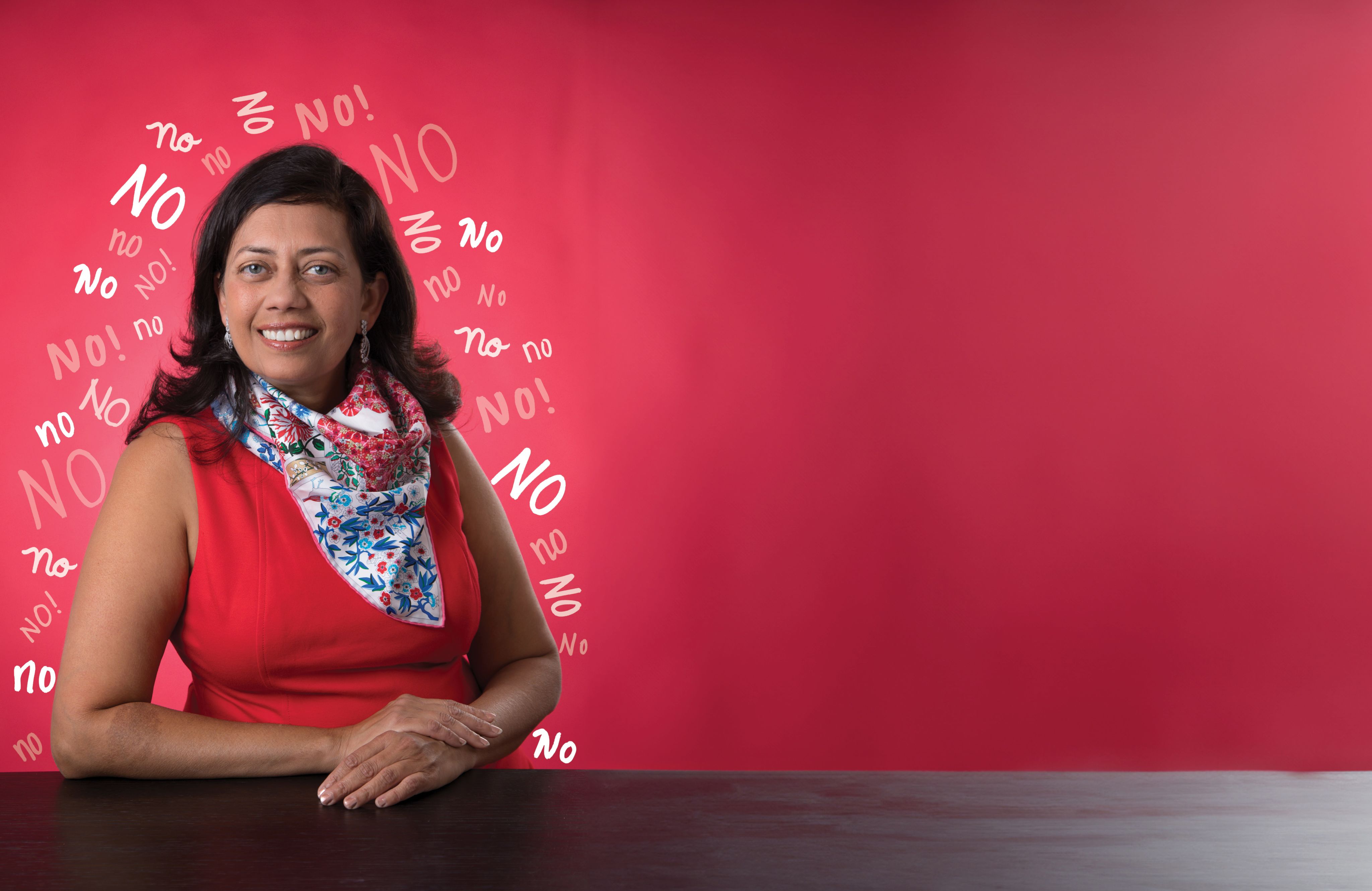The Art of Saying No
Professor Vanessa Patrick’s research shows that an empowered refusal allows us to live more authentically.
By Shawn Shinneman

Professor Vanessa Patrick has studied self-regulation for years, seeking to understand why we make the decisions we do. Somewhere along the way, she realized these decisions ultimately boil down to saying yes or no. Her research went down a new path, resulting in her book, “The Power of Saying No.” She discusses her findings here.
WHAT DO WE STAND TO GAIN WHEN WE LEARN TO SAY NO?
The bottom line is everything is a tradeoff. When we say yes to one thing, we are saying no to something else. When we learn to say no, we learn to live more authentically. We learn to live and make choices that are much more aligned with what we care about, what we find meaningful and what gives us joy and happiness. And more importantly, it doesn’t make us grumpy or resentful to the asker.
WHAT COMPELS PEOPLE TO SAY YES WHEN THEY’D PREFER TO SAY NO?
The reasons are threefold. One is that we care about our relationships with other people. We want to have friends—we want to be included. The second is that we are concerned about our reputation. And the third reason is that we never really learn. We are born with the ability to say no—toddlers are great at saying no—but then it’s socialized out of us, and we never regain that ability.
IN YOUR BOOK, YOU TALK ABOUT “EMPOWERED REFUSAL.” WHAT IS THAT?
Instead of saying, “I can’t eat chocolate cake, I can’t eat bread, or I can’t eat pasta,” say, “I don’t eat chocolate cake, I don’t eat bread, I don’t eat pasta.”
As soon as you say, “I can’t,” it sounds as if there’s some external force stopping you from doing it, and in other circumstances, you would do it, which comes across as much less internally motivated. You get much more pushback from other people. When you say, “I don’t,” our research shows that it implicates our identity. It says that this is who I am—it’s a long-term and stable stance.
By switching the language, you come across as much more empowered and self-persuasive.
WHAT ELSE DID YOU FIND INTERESTING IN YOUR RESEARCH?
I found that “no” is a gendered issue. There’s systemic pressure on women to say yes, and women succumb to saying yes more than men do. So, I think it’s important that women, in particular, recognize and build this skill of empowered refusal so that they can do stuff that’s more aligned with their purpose.
Vanessa Patrick is the associate dean for research and professor of marketing for the University of Houston’s C. T. Bauer College of Business. She also served as Fulbright Specialist from 2019-22 and is currently the lead faculty for the Bauer Executive Women in Leadership Program.


